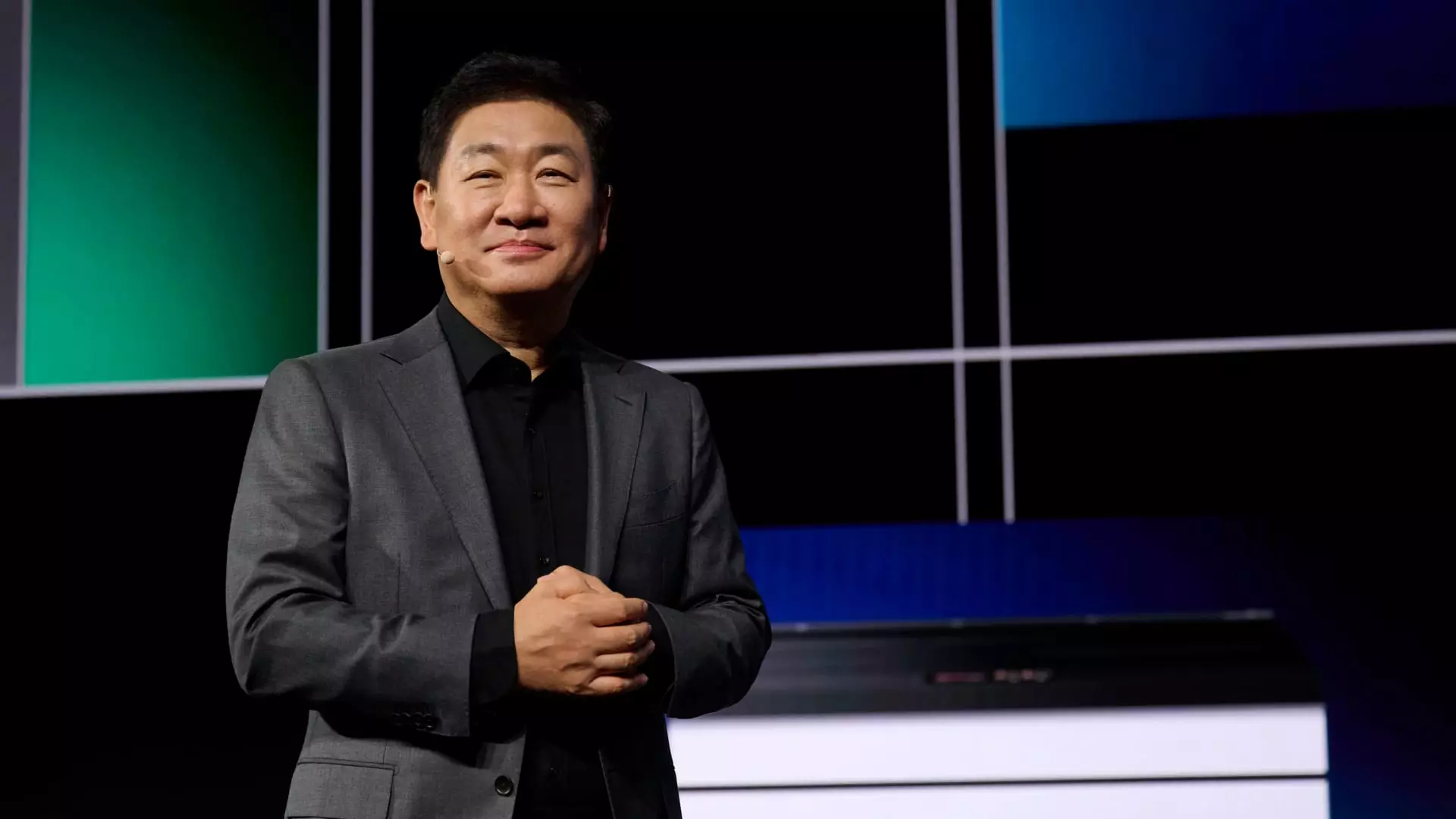Samsung Electronics is making significant strides in enhancing its on-device artificial intelligence (AI) capabilities to secure a leading position in the consumer electronics landscape. The company’s CEO, Jong-Hee Han, has articulated a clear ambition: to navigate beyond the anticipated 3% growth in the global consumer electronics market, particularly in smartphones, televisions, and home appliances, by establishing a robust AI infrastructure in its products. This push into AI is not merely an incremental enhancement but a transformational strategy that aims to redefine the user experience across various devices.
Samsung’s ambition is reflected in its ongoing efforts to integrate AI technologies into its home appliances and mobile devices. From washing machines equipped with AI chips to advanced robot vacuum cleaners, the tech giant is striving to create an ecosystem that not only caters to consumers’ needs but also anticipates them. The recent improvements made to their Galaxy S24 smartphone series showcase features like real-time translation for voice calls, underlining a commitment to pushing boundaries in technological innovation.
As Samsung amplifies its AI initiatives, it faces intense competition from formidable Chinese brands such as Huawei and Xiaomi. These companies have emerged as significant adversaries by delivering premium smartphones at competitive prices, which pushes Samsung to rethink its strategies. Han views this competitive pressure as a positive force, fostering innovation and ultimately benefiting consumers through enhanced choices. Rather than simply trying to compete on price, Samsung aims to differentiate its offerings through enhanced security features and greater convenience, positioning itself as a provider of high-value solutions in an increasingly crowded market.
Samsung’s overarching strategy appears to be increasingly consumer-centric, focusing on developing products that resonate with modern needs while surpassing mere price competition. This paradigm shift in strategy could lay the groundwork for sustained market leadership amid evolving consumer preferences.
In an effort to reinvigorate its operational prowess, Samsung underwent a leadership restructuring last November, appointing Jun Young-hyun as co-CEO alongside Han. Jun’s expertise in the memory chip division is particularly critical, given Samsung’s historical dominance in this sector. However, the company faces an uphill battle against competitors like SK Hynix, who have taken the lead in supplying high bandwidth memory chips essential for the burgeoning AI market.
Recent reports indicate that Samsung’s position in the memory chip segment is under threat, especially with the rising demand from AI leaders like Nvidia. This situation has compounded concerns regarding the company’s performance, especially after Jun’s candid acknowledgment of disappointing results in past quarters. The anticipated revenue drop suggests that the organization must pivot strategically to bridge the gap and capitalize on the increasing demand for memory solutions.
Investor Sentiment and Future Outlook
The fluctuating stock price of Samsung Electronics reflects investor anxiety over the company’s performance and market positioning. A staggering 32% plunge in share prices last year mirrors a challenging operating environment, compelling the company to implement its “value-up” plan aimed at enhancing shareholder returns. This initiative is expected to unfold gradually, although investors are keenly awaiting concrete details.
Amidst this backdrop, Samsung’s announcement of a substantial 10 trillion won share buyback plan demonstrates a responsive approach to instill confidence among stakeholders. Analysts remain cautious, voicing concerns over the potential delays in securing Nvidia’s approval for HBM chips, alongside challenges in the personal computer segment. Despite these apprehensions, maintaining a “buy” rating on the stock signals that there are held expectations for a spectacular turnaround.
Samsung Electronics is at a critical juncture. By investing in AI technologies and confronting intense competition head-on, the company is positioning itself to redefine consumer electronics. However, successfully navigating its memory chip challenges and stabilizing investor sentiment will be crucial in shaping its future trajectory.

